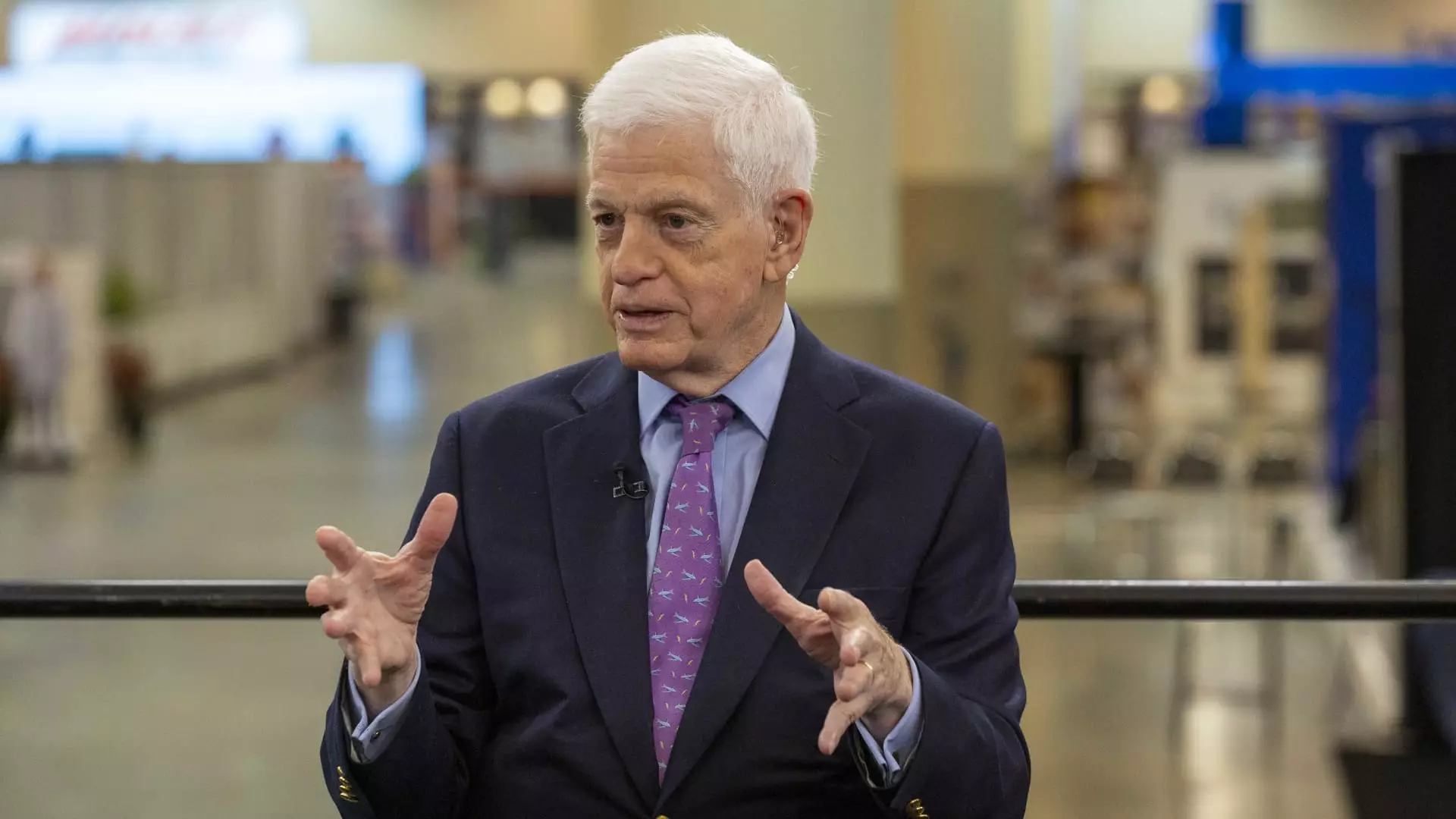In an era where traditional investments often feel cumbersome and disconnected, Mario Gabelli’s clarion call to buy a share of the Atlanta Braves resonates deeply. The suggestion to prioritize a single share over conventional gifts is anything but whimsical; it reflects a significant shift towards community-driven capital ownership that resonates well with today’s investors. Owning a part of local teams like the Braves fosters a sense of belonging and shared delight. This isn’t merely about financial speculation; it’s about being part of a narrative that spans generations, one where you are not just a spectator, but a stakeholder in the excitement of the game.
Consumer Sentiment Plays a Crucial Role
Gabelli’s comments, made during a recent CNBC interview, come at an opportune time. Public trading shares of the Braves saw a marked uptick following his endorsement, which underlines the significance of consumer sentiment in today’s market. When investors show confidence in a brand—especially one as culturally ingrained as a beloved baseball team—the ripple effect can deliver profitable outcomes for everyone involved. The sports industry is more than a mere pastime; it is a moneymaking machine powered by fan loyalty. The dynamic blend of nostalgia and modern capitalism essentially places the Braves in a favorable position both on and off the field.
A Smarter Move Than Conventional Gifts
Gabelli’s suggestion to favor a Braves share over an Easter gift is more than a catchy quip. It is an assertion prompting individuals to reconsider conventional gifting in favor of investments that have the potential to appreciate with time. Money spent on tangible items often wanes in significance shortly after the occasion—gifting a share symbolizes a long-term commitment and strategic thinking. In an age where everyone is searching for value, positioning oneself as an investor rather than a consumer might be the smart play to carve out a financial future.
Broadening Investment Horizons
Mario Gabelli didn’t stop at the Braves; he also directed his attention towards other underappreciated companies like Crane Co. and GATX. Just as he emphasized the growth potential of Crane Co., a company flourishing under capable leadership, it’s worthwhile also to consider the Braves’ management team. Governance matters in sports franchises too. The Braves, under their adept management, exhibit growth strategies which can be analogous to corporate restructurings; efficient decision-making reflects positively on stock price over time.
Entertainment as an Investment Frontier
In a mention that strikes a chord with the gaming and entertainment business, Gabelli highlighted Sony Group. As fans eagerly await the next Grand Theft Auto installment, it underscores how entertainment properties can influence stock prices significantly. The synergy between various markets—video games, music, and traditional sports—unlocks potential revenue streams that savvy investors can harness. Aligning investments in sectors driven by culture and fandom can be particularly rewarding, and the Braves fit neatly within this milieu by being part of a mega-market where cultural affinity translates into real economic value.
Cash Flow: The Lifeblood of Investments
Investors are increasingly seeking companies with robust, sustainable cash flows, and the Braves symbolize that same promise when it comes to sports franchises. The Braves are not solely a team on the field; they represent a lucrative business model encompassing merchandise, ticket sales, and even local and national broadcast deals. The resilience of such financial frameworks in the sports arena cannot be overstated in a climate where unpredictability reigns supreme.
A Sense of Timing and Resilience
Finally, timing in investment is everything. Gabelli’s emphasis on seizing the moment—whether it’s through rallying behind the Braves or exploring undervalued stocks—encapsulates the need for investors to remain agile and informed. The current economic landscape offers unique opportunities for growth and advancement, and those who stand on the sidelines may find themselves outpaced by those who recognize that sometimes, the best investments don’t merely reside in charts and graphs but also lie within the community fabric that sports teams represent.
Investing in the Atlanta Braves may more than just be a monetary decision; it encapsulates the zeitgeist of a generation that increasingly values community connectivity as part of their investment tapestry.

